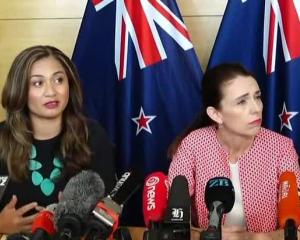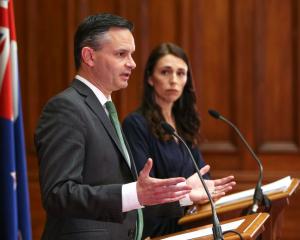
The new Labour-led Government could slash immigration numbers “overnight” once it takes power, a former Immigration Minister believes.
With net migration at 71,000 in the year to September, Prime Minister-in-waiting Jacinda Ardern last night said she expected those numbers to be cut by 20,000 to 30,000 per annum.
Coalition partner New Zealand First, which has also lobbied strongly to reduce immigration numbers, has set the lower target of 10,000 people a year, according to its website.
Tuariki Delamere, who now runs an immigration consultancy, told The New Zealand Herald that these drastic changes could be made by the new Government without having to change the law.
“The minister decides on the new instructions for visas. They could change things overnight,” he said.
“The law doesn’t need to be changed, what they need to change is the policy. That goes through Cabinet, they approve the new immigration instructions and that will set the criteria for visas.
“Once they decide what to do they just write in the new regulations for issuing visas. They could reduce the numbers very easily and very quickly.”
It was still unclear how the Government planned to achieve its reductions but the logical targets would be low-skilled worker and student visas, Mr Delamere said.
“Now it really comes down to ... [Ardern] needs to explain, what do you mean by reducing immigration? Are you going to stop all the investors and the entrepreneurs who invest large amounts of money in New Zealand? I don’t think so. You have 20 types of visas out there so which ones are you going to make more difficult or cut out?
“But there are a lot of people who shouldn’t really be here like students who don’t really study - they come here and go straight to work on the orchards.”
Mr Delamere said it would be equally simple for the Government to increase the points system for obtaining New Zealand residency.
“The new minister could do that the same day they’re sworn in by the Governor General.”
A Labour spokesman referred the Herald to the party’s website page on immigration, which outlines how it plans to achieve the reduction set by Ardern.
It would limit students visas and the ability to work for “low value courses”, which it says would result in a fall of 6000 to 10,000 a year. It would remove work visas without a job offer for lower-level qualification graduates, resulting in a fall of 9000 to 12,000. It would also “regionalise” the work visa occupation list and “ensure that employers hire Kiwis first”, leading to a fall of about 5000 to 8000 new migrants.
The policy plan also includes the introduction of an “Exceptional Skills Visa” where up to 1000 sought-after applicants per year could avoid the usual points system requirement, as well as a “KiwiBuild Visa” where residential construction firms could hire skilled tradespeople on a three-year work visa. This would be limited to 1000 to 1500 at a given time.
On its website, NZ First says it aims to reduce the numbers through policies including making sure immigration under “family reunion” is strictly controlled; increasing the permanent residency qualification period from the current two-years; and substantially increasing the minimum English requirement.
Reacting shortly after the new Government was announced, BusinessNZ chief executive Kirk Hope said New Zealand will be “in trouble” if the country severely cut immigration numbers without having education policies aligned to make sure businesses have the skills they need.
“That will stymie economic growth.”
According to latest Statistics New Zealand data, annual net migration was 71,000 in September, still up from the 70,000 net inflow a year earlier, but extending the slowdown from a peak in July.
The data continue a trend of slowing net migration, with the seasonally adjusted figures showing a monthly inflow of 5190 in the month of September, the smallest intake since June 2015.
“The annual net migration in September 2017 was lower than the record annual net migration of 72,400 reached in the July 2017 year,” population statistics senior manager Peter Dolan said in a statement.
“Compared to this peak, we had fewer arrivals and more departures in the September 2017 year.”
Net migration figures had been bolstered by a reluctance of Kiwis to shift across the Tasman as Australia’s economy went through a downturn and New Zealanders lost access to certain government supports.
- NZME and BusinessDesk












